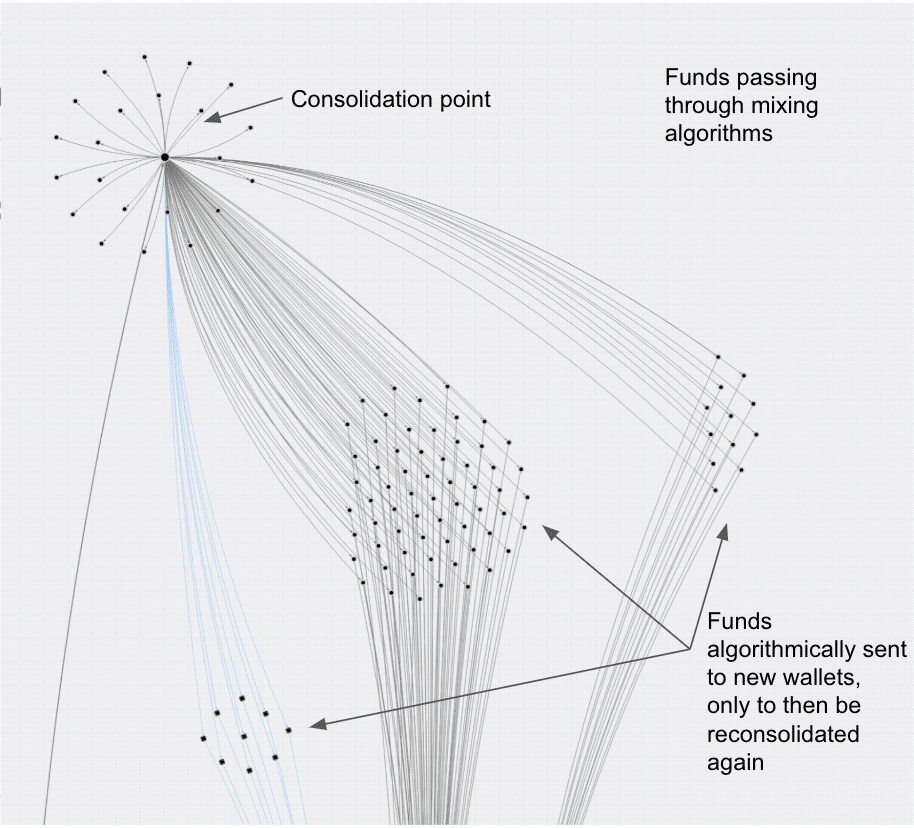Biggest crypto market manipulations ever recorded

Explore the most significant proven market manipulations in crypto history to date.
The crypto and defi space is full of innovation and opportunities but also of risks and challenges. One of the most serious problems plaguing the industry is market manipulation, which involves deliberately distorting prices and volumes.
Market manipulation can take various forms and methods, such as wash trading, pump and dump, flash loan attacks, and rug pulls.
In this article, we will review some of the most notable cases in the crypto and defi space involving tokens such as Bitcoin, FTT, Hydro, and DGTX.
Wash trading on DEXs
Solidus Labs, a crypto trade surveillance and risk monitoring company, analyzed about 30,000 liquidity pools on Ethereum-based decentralized exchanges (DEXs) and found that 67% of them were manipulated by wash traders.
Wash trading accounted for 16% of the total trading volume of these pools, amounting to at least $2 billion since September 2020.
Moreover, Solidus Labs provided examples of how wash traders exploited DEXs to manipulate the prices and volumes of various tokens, such as SHIBAFARM, a meme token that was used to scam speculators for more than $2 million.
Solidus Labs has been developing solutions to detect and prevent market manipulation on DEXs, such as Token Sniffer, DEX-Based Insider Trading, and DEX-based A-A Wash Trading Detection.
PlusToken scheme
PlusToken was a Ponzi scheme that operated from 2018 to 2019, promising high returns to investors who deposited cryptocurrencies into its wallet app.
The scam attracted over 3 million victims and stole more than $2 billion worth of crypto, mainly Bitcoin (BTC) and Ethereum (ETH).
According to Chainalysis, a blockchain analysis firm, PlusToken scammers also engaged in market manipulation by selling large amounts of their stolen crypto on exchanges, creating downward pressure on the price of Bitcoin.
Chainalysis estimated that PlusToken scammers liquidated at least $185 million worth of Bitcoin between September and December 2019, coinciding with significant price drops.
The report also found that PlusToken scammers used various techniques to hide their tracks, such as mixing services, decentralized exchanges, and OTC brokers.

BitConnect scam
BitConnect was a crypto trading platform that claimed to use a proprietary trading bot and volatility software to generate profits from crypto market fluctuations.
However, the platform was a Ponzi scheme that paid earlier investors with money from later investors and stole more than $2.4 billion worth of crypto from over 3 million victims.
The founder of BitConnect, Satish Kumbhani, 36, from India, was charged by a federal grand jury in San Diego with multiple counts of fraud, price manipulation, money laundering, and operating an unlicensed money-transmitting business.
Kumbhani also allegedly manipulated the price and volume of BitConnect’s native token, BCC, to create a false impression of market demand and attract more investors.
Kumbhani’s whereabouts are unknown, and the U.S. Securities and Exchange Commission (SEC) is unable to locate him. He could face up to 20 years in prison if convicted.
The FTX case
In November 2022, FTX collapsed after a series of events that exposed its insolvency and fraudulent activities, such as using customer funds to cover its losses, inflating its trading volume and liquidity, and lying about its partnerships and regulatory compliance.
The SEC filed a civil complaint against Caroline Ellison, the former CEO of Alameda, and Gary Wang, the co-founder and former CTO of FTX, for their roles in the FTX debacle.
The regulatory body alleged that Ellison and Wang manipulated the price and volume of FTT by using Alameda’s trading bots and accounts to buy and sell FTT on FTX and other exchanges, creating a false impression of market demand and profitability.
The SEC also accused Ellison and Wang of defrauding FTX customers and investors by making false and misleading statements about FTX’s financial health, security, liquidity, and regulatory compliance.
According to the SEC, Ellison and Wang’s actions caused FTX customers and investors to lose millions of dollars and contributed to the collapse of FTX and the crash of FTT, which lost over 90% of its value in a matter of days.
Ellison and Wang faced civil charges of securities fraud, market manipulation, and aiding and abetting FTX’s violations of the Securities Exchange Act of 1934.
Hydrogen Technology
Hydrogen Technology was a fintech company that operated a crypto token called Hydro, which it leveraged for most of its various financial services and products.
The SEC filed a lawsuit against the company in September 2022, alleging that Hydrogen Technology and its founder, Michael Ross Kane, violated the securities laws by offering and selling Hydro without registration and by hiring a market maker to artificially inflate the price and volume of Hydro on crypto exchanges.
Moreover, the securities regulator claimed that Hydrogen Technology and Kane made more than $2 million from selling Hydro into the manipulated market and deceived investors about the nature and value of Hydro.
The SEC also charged Tyler Ostern, the CEO of the market maker firm, for his role in the scheme.
Hydrogen Technology and Kane consented to the entry of final judgments that permanently enjoined them from violating the securities laws, ordered them to pay disgorgement, interest, and penalties, and barred Kane from serving as a director or officer of a public company.
Ostern also consented to a judgment that enjoined him from violating the securities laws and participating in future securities offerings, and ordered him to pay disgorgement and interest.
Adam Todd’s case
In September 2022, the U.S. Commodity Futures Trading Commission (CFTC) filed a complaint in a Florida court against Miami resident and entrepreneur Adam Todd, the founder of Digitex, a crypto exchange that offered futures and spot trading on various cryptocurrencies.
The CFTC alleged that Todd and the four companies he controlled violated the Commodity Exchange Act (CEA) by operating an unregistered futures exchange, facilitating unlawful futures transactions, and attempting to manipulate the price and volume of DGTX, the native token of Digitex.
The regulator claimed that Todd and his companies solicited U.S. customers to trade on Digitex without complying with the registration and regulatory requirements of the CEA and without implementing proper anti-money laundering and customer protection measures.
Furthermore, the CFTC also accused Todd of using a trading bot and other methods to artificially inflate the price and volume of DGTX on third-party exchanges in order to attract more investors and boost the value of the Digitex treasury, which held a large amount of DGTX.
Bitcoin price manipulation
Bitcoin reached a high of nearly $20,000 in December 2017 after a year of unprecedented growth.
However, a study by researchers at the University of Texas at Austin suggested that this surge was partly driven by market manipulation involving Tether (USDT), a stablecoin that is pegged to the U.S. dollar and issued by a crypto exchange called Bitfinex.
The research analyzed the blockchain data of Bitcoin and Tether transactions and found that Tether was used to buy Bitcoin at times of low demand, creating artificial price support and inflating the value of Bitcoin.
Moreover, the study also found that Tether was mostly issued in large amounts, often exceeding the cash reserves that Bitfinex claimed to have, raising doubts about the backing and legitimacy of Tether.
The research concluded that Tether accounted for at least 50% of the increase in Bitcoin’s price in 2017 and that the manipulation was likely conducted by a single entity or a coordinated group of traders.
The study sparked controversy and criticism from Bitfinex and Tether, who denied any wrongdoing and accused the researchers of bias and flawed methodology.

















